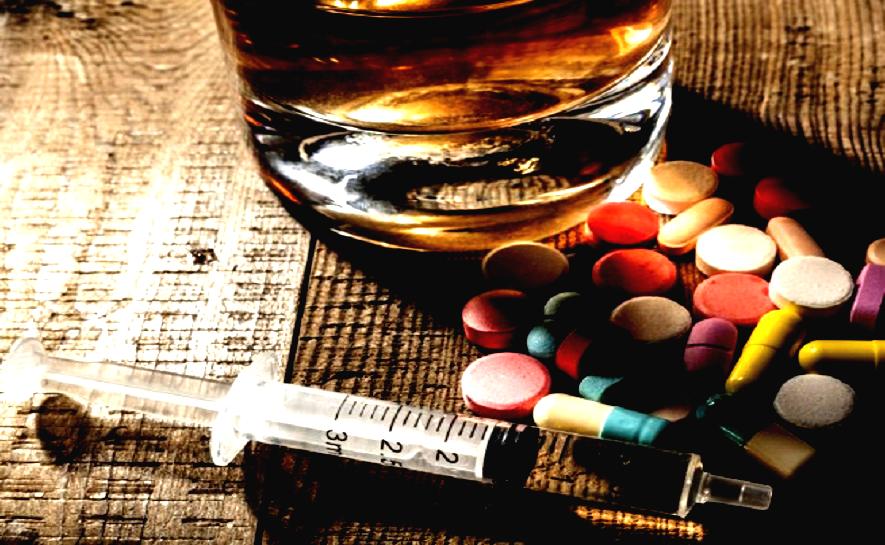It’s the weekend, and you want nothing more than to let go and live it up. While occasional use of club drugs might seem like no big deal, the inherent risks tell a very different story.
Picture this: you are young, healthy, and have a job you like. On the weekends you love to go out and let go a little. Sometimes that means having a few drinks and maybe doing a few lines of speed, or taking MDMA or GHB. And while you might be pretty hungover the next day or two, you are able to carry on as usual, with no noticeable effects on your everyday life.
Yes, it is drug use, but it’s casual. Right?
Unfortunately, the nature of club drugs undermines what you may perceive to be limited or “responsible” use of these substances. Understanding the real dangers of club drugs, from the unknowns in their composition to the potential for addiction, can help you gain a more informed perspective on your partying.
What are Club Drugs, Exactly?
Club drugs are a group of psychoactive drugs that cause changes in your mood, awareness, and behaviour. While there’s a variety of drugs that can be found at clubs, concerts or parties, some of the most common include the following:
Methamphetamine – Also known as speed drug, meth, crystal, ice
Popular for its positive effects on mood and energy, methamphetamines work by triggering the release of high levels of dopamine in the brain, a “feel good” neurotransmitter. Other short-term physical effects include elevated blood pressure and a rapid or irregular heart rate, as well as increased body temperature.
MDMA – Also known as ecstasy, E, or molly
Better known for its effects on mood and perception, MDMA heightens sensitivity to touch, sound and light, and can induce feelings of emotional closeness to others. MDMA also works by flooding the brain with neurotransmitters such as dopamine, norepinephrine, which increases heart rate and blood pressure, and serotonin, which affects mood, sleep and appetite. In the short-term, MDMA use also raises body temperature, sometimes to dangerous levels, and can cause muscle cramping, sweating, and chills.
Ketamine – Also known as Special K
A powerful anesthetic often known for its use in veterinary medicine, ketamine causes hallucinations and feelings of disassociation or detachment from reality. Ketamine works by affecting the glutamate system in the brain, which is used for neurons to communicate. Ketamine can increase your heart rate and blood pressure, decrease your ability to feel pain, and cause serious bladder problems.
Gamma-Hydroxybutyrate – Also known as GHB, or Liquid X
GHB is a depressant that works by slowing down the central nervous system. While users take it for its hallucinogenic and euphoric effects, its variable potency can also cause unwanted symptoms like extreme drowsiness and blackouts, nausea, vomiting and dizziness. A GHB overdose can result in seizures, unconsciousness, and even death.
What are the Dangers of Club Drugs?
You are likely somewhat aware of the risks around club drugs. You might have experienced some side effects that scared you, like feeling like your heart was beating too fast, or being uncomfortably disoriented. You may have written this off later as a “normal” side effect, and maybe even laughed about it with friends.
However, it is important to remember that these side effects aren’t a joke. Club drugs are incredibly potent, and can be seriously harmful and even lethal in some circumstances.
You May Be Taking More Than You Bargained For
One of the biggest risks with taking club drugs is that they are frequently adulterated (mixed) with other chemicals. These chemicals vary, and so the drug that may have caused little to no side effects the first three times you used it, can cause an overwhelmingly negative reaction the next time. Adulterants include everything from the powerful opioid Fentanyl, to cough medicine, and greatly increase your risk of serious side effects and overdose.
Mixing Them with Alcohol Can Cause Serious Harm
Just as the presence of unknown adulterants can significantly increase the risk of harm from club drugs, so can their interaction with alcohol. It is very common for people to have a few drinks while they are under the influence of other drugs, and this can lead to serious and potentially fatal side effects. For example, taking GHB or ketamine while drinking alcohol can result in an overdose, slowing breathing to dangerous levels and leading to blackout, coma, and even death.
Can Club Drugs Become Addictive?
No one who starts using drugs thinks that they will become addicted. However, because of the ways that club drugs interact with the brain’s reward centre, the risk of addiction is always present. Here are some signs to be aware of:
- Experiencing frequent cravings for a drug
- Realising that you are developing a tolerance—you need more of the drug to feel the desired effect
- Making excuses to use it at times you wouldn’t normally
- Feeling a need to hide your use from others
These signs can indicate that your casual use may have slipped into an addiction. Reaching out for professional support is critical in making a safe, full recovery.
Why Professional Treatment is Needed to Overcome Club Drug Addiction
You may have noticed that over time, your symptoms of withdrawal have become more severe. Withdrawal symptoms may include things like:
- Nausea or vomiting
- Chills or high fever
- Shaking or seizures
- Racing or irregular heartbeat
- Extreme mood swings
- Paranoia, delusions
- Vivid hallucinations
- Feeling emotionally “flat”
- Depression or suicidal thoughts
These symptoms are an indication of an increasing physical and psychological dependence on the drug, and the need for professional detox. Going through this process under medical supervision allows you to have the support and resources you need to detox in a safe and healthy way.
After your detox is complete, an addiction therapist can work with you to uncover the root causes of your addiction, understand triggers, and develop new, healthy coping mechanisms that allow you to let loose and have fun without engaging in self-destructive behaviours. This therapy helps you to better understand yourself and what you want, and lays a strong foundation for a lasting recovery.
Overcoming Club Drug Addiction at The Dawn

The Dawn Wellness Centre and Rehab is a Thailand drug rehab center that is internationally accredited by the American Accreditation Commission International. We offer holistic inpatient treatment for those looking to move beyond their addiction and change their lives for the better. Our approach to treatment focuses on the body and mind, seamlessly blending modern therapeutic techniques with proven wellness practices to help clients understand and heal from their addictions.Our experienced, internationally-trained staff will work with you from the moment you arrive to develop a personalised treatment plan to fit your specific needs.
Drug Addiction Treatment in Thailand
Located in stunning northern Thailand, The Dawn’s resort-like centre sits on a quiet riverside just outside the city of Chiang Mai. Our facilities include lush gardens and private, well-appointed rooms as well as a swimming pool, gym, and yoga and meditation studio. You’ll feel a world away from all the stressors and triggers of home, and inspired to rediscover yourself in our peaceful oasis of healing.
Call The Dawn today to learn more about our unique and effective programming.
Related Posts
 Ketamine and Addiction: Understanding the Risks
Once best-known as a psychedelic club drug, ketamine has also gained attention as a possible innovation in the treatment of severe depression. However, the chance of negative side effects, including...
Ketamine and Addiction: Understanding the Risks
Once best-known as a psychedelic club drug, ketamine has also gained attention as a possible innovation in the treatment of severe depression. However, the chance of negative side effects, including...
 Why Drugs Are Addictive : What Turns a Regular Person into an Addict?
The drugs that harm your body, your relationships and your community have the highest possibility of addiction and abuse. Why are some drugs so irresistible that even people who use...
Why Drugs Are Addictive : What Turns a Regular Person into an Addict?
The drugs that harm your body, your relationships and your community have the highest possibility of addiction and abuse. Why are some drugs so irresistible that even people who use...
 Drug Classifications: A Comprehensive Guide
Drug classifications have many different forms, from chemical content to similar effects and legal classifications. Read on to learn about drug classifications.
Drug Classifications: A Comprehensive Guide
Drug classifications have many different forms, from chemical content to similar effects and legal classifications. Read on to learn about drug classifications.
 Guide to Addiction & Mental Health in Australia
Australia, as with many other countries, isn’t alone in facing a growing problem with addiction and mental health-related issues. Dealing with this growing crisis and the complexities of addiction and...
Guide to Addiction & Mental Health in Australia
Australia, as with many other countries, isn’t alone in facing a growing problem with addiction and mental health-related issues. Dealing with this growing crisis and the complexities of addiction and...





